
Opening day of Texas’ youth-only hunting season and Josh Crumpton’s son had just killed his first turkey. “I'm really proud of him, three seasons in the making and it didn't come easy. But I’m glad we got that out of the way,” he said while he cooked breakfast for his family of seven, slipping seamlessly between dishing plates and talking on the phone. Everyone was eating before he grabbed an AirPod to free up a hand. If this gives you anxiety, know that Josh thrives on this brand of chaos.
“I was diagnosed with ADD when I was a kid,” he said. “At some point, I got off all the medication and I realized that’s part of the nature of who I am. I have to take advantage of the times when I’m hyper-focused.”
Watching Josh in the field directing bird dogs, stopping to teach clients about native plants and their impact on the soil’s ability to retain water, it’s easy to imagine that he’s been at this all his life. But to use Josh’s term, he’s an “adult-onset hunter.” Despite having a grandfather known amongst many as an expert hunter and fisherman, his mother and step-father’s avid aversion to firearms—a product of their devout faith—kept Josh from developing a relationship with his grandfather and inheriting the outdoor traditions he embodied.
“These are traditions that are somewhere at the base of all cultures and peoples,” he said. “No matter where you come from, somewhere there is a hunter or angler in your background.”

Fly fishing came easier to Josh, although it didn’t come easy. Growing up—in part—in Telluride, CO, at a time when the stores would let you make purchases on store credit, Josh charged an Orvis fly rig to his parents’ account. He kept the gear hidden, sneaking it away to the San Miguel River to try to teach himself to fly fish. Eventually, the bill came due, and, to Josh’s surprise, his mom insisted he take fly fishing lessons—after he worked off the rod and reel, of course.
His first trout—a stocked fish from the pond in Telluride’s Town Park—didn’t transform Josh into the lifelong angler he is today. That moment came later, back on the San Miguel with some friends and their father, Dan Lansing, who plodded through the river with the kids, turning over rocks, talking about hatches. At that moment, before a wild trout ever danced at the end of his line, Josh felt connected to the world in a way he’d never experienced. There beneath those river rocks, the food cycle came into focus.
“This is the interplay between fish and water and bugs, and the cycle,” he said, remembering that day on the river. “That was probably the moment when my relationship with nature really changed.”
There was a deliberateness to Lansing’s instruction that has stuck with Josh, evidenced by the adult hunting and angling mentorship programs he created and runs. He also inherited a defining personality trait that day on the San Miguel: a willingness, maybe even a drive, to turn over the rocks in his life and figure out what’s churning beneath them.
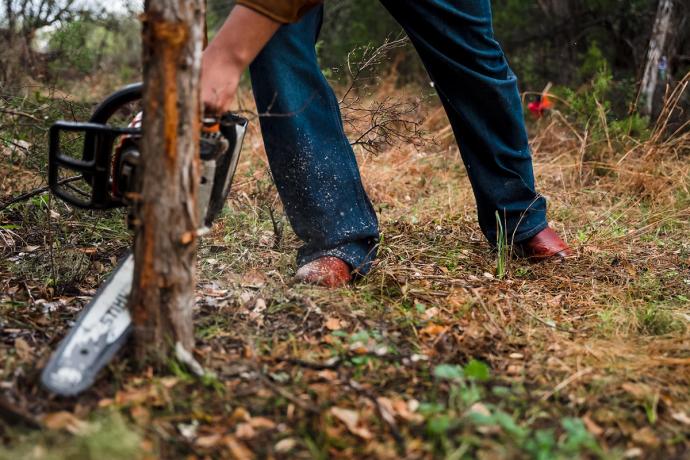
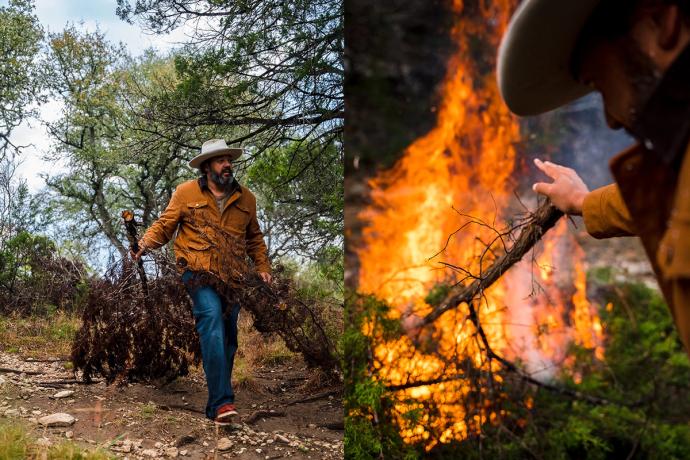
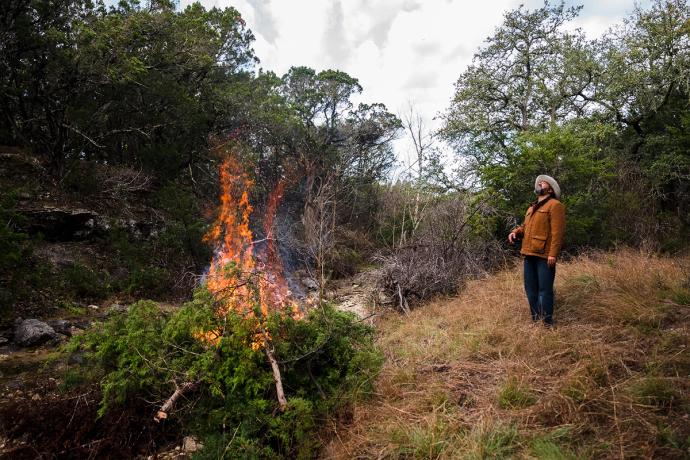
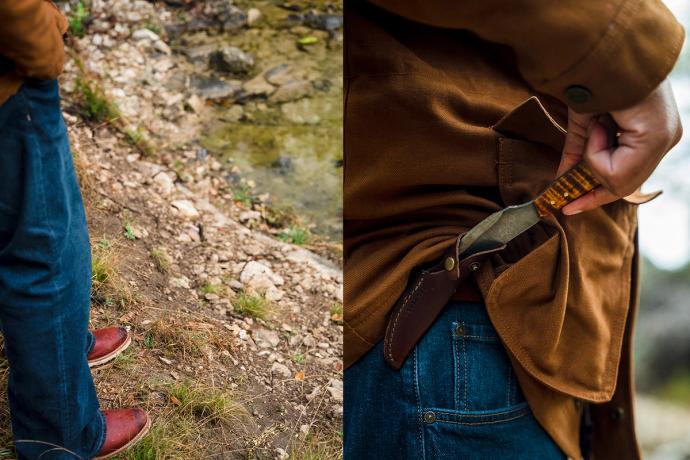
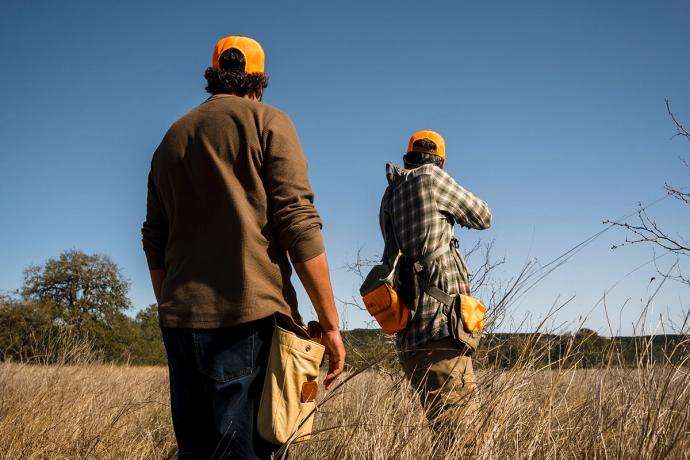
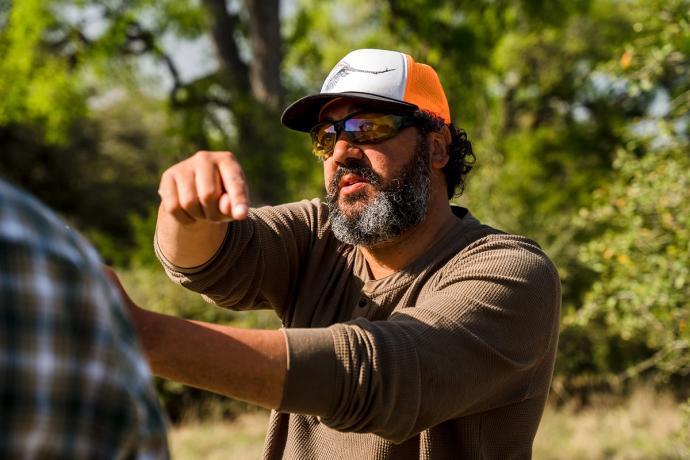
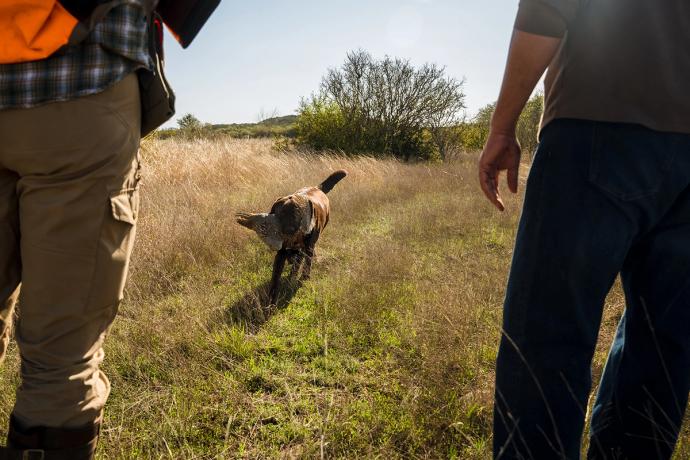
“I remember in middle school,” he said, recalling his school years spent in San Antonio, “these kids would show up in camo on Friday afternoon. And I remember thinking, ‘Man, those little bastards are going to get to leave school early.’”
He laughed a deep laugh before considering how the social justice protests in the summer of 2020 led to a “reawakening for diversity in the outdoors.” Until recently, Josh never saw people like himself depicted in outdoor advertising. During a time when so many reflected on how their race has impacted their life—and the lives of others—Josh did his own examination of some of his earliest biases.
Reflecting on his attitude toward the mostly white and male hunters he experienced at a young age, Josh said, “I was jealous that these kids were doing something with that male role model in their lives, something I was lacking.” (Josh never knew his biological father nor did he have a strong relationship with his step-father.) “It was really easy to take the next step, which was to look at all of them and immediately jump to thinking, ‘They’re all racists, Bubbas, backwoods, and I don’t want to [go hunting] anyway.’”
Josh recognizes this as a defense mechanism now, but still, such biases—plus an inherited aversion to firearms—kept him from becoming the hunter his grandfather was.
That changed, eventually, after Josh read The Omnivore’s Dilemma by Michael Pollan. He remembers calling his wife and telling her they were going to start a sustainable farm on her family’s 1000-acre ranch on the Blanco River near Wimberley, TX.

“I learned pretty quickly that I was a shitty gardener,” he said. It should be noted, however, the dedication that went into this “failure.” Josh, as he does in all things, studied farming for a year and a half before planting his first seeds. The rocky soil eventually proved too great a barrier, though, but in his work on the ranch, Josh started to recognize ways he and the family could become better stewards of the land. Noting that bison once dominated that part of Texas, Josh came to recognize the work the long-gone herds did in trampling cedar saplings and aerating the soil. “I have to be the bison, now,” he said.
Josh has no interest in preserving the land his family has inherited. His aim is conservation, which to him means making the land as healthy as possible, while allowing for the land to adapt and change over time. This goal might be the thing that turned Josh into a hunter. He realized pretty quickly that there were far too many whitetail deer on the ranch. Reluctantly, he put up a game fence, and with even greater hesitation, he taught himself to hunt and clean animals.
As a first step, he took a hog butchering class. Next, while still reckoning with his past beliefs about guns, he watched as a friend shot and killed a hog. Josh took over from there, gutting and cleaning the pig on his own. He knows now there’s no need to retain the skin by scalding and removing the hair of the hog, but this experience was about more than efficiency. Josh was inheriting a lost tradition.

“I remember getting the guts and the hide free of the animal, and I remember that I’d built up a sweat. It was cold outside, but I’d rolled up my sleeves. My core temperature was coming down, and I remember the feeling of the perspiration getting cold on my body and the note of the iron—the blood—and it being really clean and the air coming into my body being really crisp. That was the moment when that pig became food. I connected to the food web.”
“Magic moments,” Josh calls them, that happened twenty years apart, helping him inherit traditions of being an angler and a hunter. That morning, when his son killed his first turkey, Josh passed on some of that inheritance. And as the founder of Spoke Hollow Outfitters, his influence is felt far beyond his immediate family.
“I think we, as a group, are finding our purpose, which is opening the door and giving people the skills to connect with nature through the traditions we love, which are hunting and fishing.”
It might seem counterintuitive for a hunting and fishing outfitter to hope they don’t have repeat customers, but Josh would much prefer that the students from one of their four mentorship programs take the skills they learn with him and his guides and build their own “outdoor legacies.” And there’s always the Spoke Hollow Outpost hunts if you want to put those new skills to the test.
This story originally appeared in Volume Nine of Modern Huntsman.